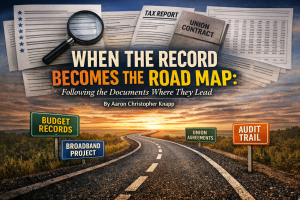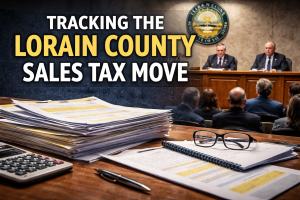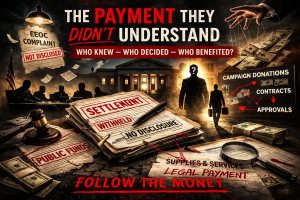Locked Out of My Own Primary: One Republican’s Battle in Blue Lorain
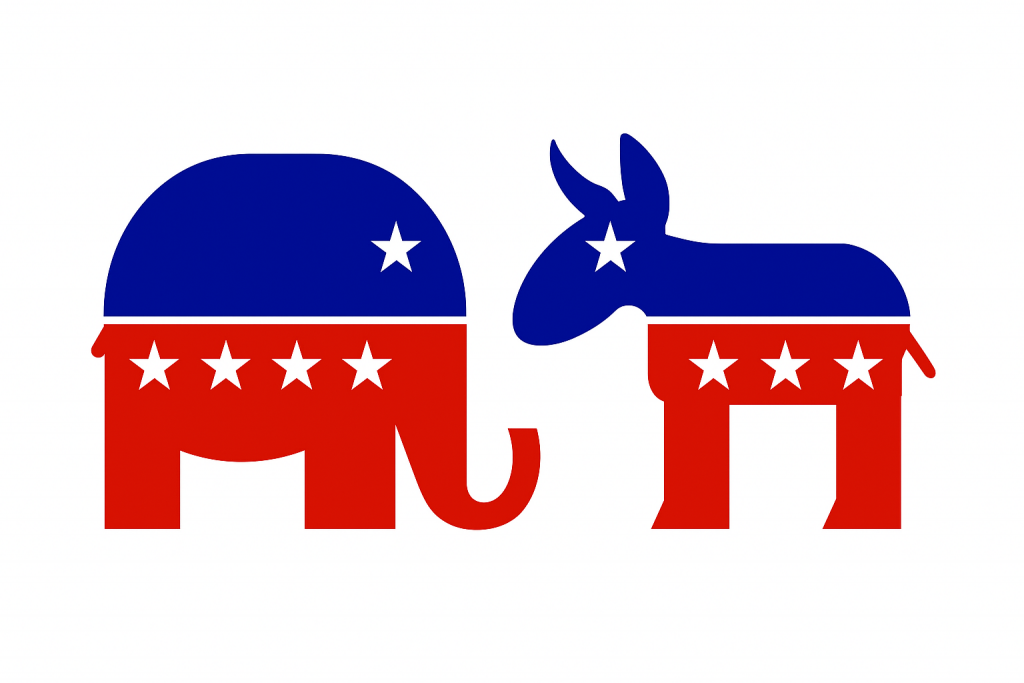
By Aaron C. Knapp
Running as a Republican in a Blue Stronghold
I never imagined the day I’d be certified by law to run as a Republican—and still be told I couldn’t vote Republican in my own primary. When I launched my campaign for 6th Ward Council, I knew Lorain was a Democratic bastion. Yet Ohio law (R.C. § 3513.05) offers a petition path: collect 25 valid signatures from registered Republicans, file your declaration, pay the fee—and secure your place on the November ballot without a partisan primary fight. By January 25, 2025, the Lorain County Board of Elections had certified my petition, confirming every requirement was met.
Securing certification felt like the finish line. A simple check in the poll book on Primary Day would reaffirm my party affiliation and activate my GOP status in the county’s records. Instead, I found that in Lorain, Republican voters don’t “exist” unless they pull a contested Republican ballot—of which there were none this year. My petition placed me on the November ballot but erased my Republican identity in the process.
Thanks for reading Aaron’s Substack! Subscribe for free to receive new posts and support my work.
Why does the system certify my candidacy and then treat me as if I’ve never been Republican? This contradiction exposed a structural flaw: a mechanism that sidelines challengers by denying them the basic recognition of party membership at the polls.
The BOE Encounter That Upended Everything
On April 18, 2025, I arrived at the Lorain County Board of Elections hoping to cast my Republican primary vote. At the window, the clerk—after slipping into the back to confer with her boss—returned and had me swipe my ID and sign the pollbook. Then she looked up and said, “You must state if you want a Democrat or an Independent ballot.” I insisted I wanted a Republican ballot. She voided my paperwork and summoned her supervisor, at my request.
As we were speaking, Kramer, a lifelong Republican and the BOE’s second‑in‑command, leaned forward and said, “Can you let me finish?” I reminded him that under Ohio Rev. Code § 3503.06, any refusal to issue a requested ballot must include a written notice stating the specific legal reason. Kramer’s face hardened. He shook his head and said, “I’m not arguing with you,” before turning and walking back to his office.
No statute citation. No written denial. No receipt or form. Just an abrupt refusal that left me standing at the counter, ballotless and branded “Democrat (2023)” in the BOE’s records—despite the election code’s clear requirement for transparency. I waited for a scrap of paper, an email, any acknowledgement that my request had been evaluated. Nothing materialized.
I then realized the BOE had not only refused my Republican ballot, but had also violated their own rules. They had locked me out of my party’s primary, erased my petition‑earned status, and denied me the courtesy of a written explanation. That single act revealed the broader breakdown: a public‑servant staff throwing voting rights under the bus for bureaucratic convenience.

Navigating Ohio’s Party‑Affiliation Maze
Ohio’s “semi‑open” primary system doesn’t register party affiliation in advance. Instead, your affiliation is set by the party ballot you cast in a primary and remains in effect for that year and the next two calendar years. Because I voted in the Democratic primary in 2023, the BOE’s records likely flagged me as a Democrat, rendering me ineligible for a Republican primary ballot in 2025.
However, Ohio Revised Code § 3513.05 offers a separate pathway: a petition route that allows candidates to bypass the primary altogether and secure a place on the general‑election ballot. That’s exactly what I did. The law clearly states that once my petition and declaration of candidacy are validated—signatures from Republican or unaffiliated electors meeting the statutory threshold—I become the certified Republican candidate in November, regardless of my primary‑ballot history. Yet nobody at my BOE office ever cited this statute or handed me a written explanation. I spent four hours scouring the Revised Code on my own just to confirm my rights.
Ohio Revised Code § 3513.191 further explains that the restriction on cross‑party primary voting applies only to becoming a candidate in a primary. It does not affect candidates certified by petition for the general election. Even if I cannot vote Republican in May, my November spot as the Republican nominee is secure.
This perverse loophole neuters GOP challengers: you can clear every legal requirement for November, yet you remain locked out of your own party’s primary. No contested Republican races = no Republican ballots pulled = no record of conservative voters in the database.
My Right to Vote on Issue 2—and Why It Matters
Republicans in Lorain face an unprecedented dilemma: retain their party identity or exercise the fundamental right to vote on critical issues. On May 6, every Ohioan will have the opportunity to decide on Issue 2, a constitutional amendment to fund public infrastructure improvements through general obligation bonds. Yet when I arrived at the BOE seeking my Republican ballot, staff insisted I surrender my GOP status for an “issues‑only” ballot—effectively labeling me nonpartisan and erasing my party affiliation in the official record.
This coercive choice strikes at the very core of our civil rights. In America, voting is a guaranteed freedom, yet here I was, forced to choose between staying Republican and engaging in civic duty. By relegating conservative voters to a sterile “issues‑only” category, Lorain County treats our ballots as second‑class, stripping us of representation at the polls and diluting our voice on matters that affect every community member. What guarantee do Republicans have that their concerns about roads, schools, and public safety will ever be heard if the election system abstracts us away as “nonpartisan”? It doesn’t just feel unfair—it violates Ohio Rev. Code § 3503.06, which demands a clear, written explanation whenever a voter’s requested ballot is denied.
Moreover, this system erases the existence of Republicans in Democratic strongholds. With no contested GOP races on the ballot, conservative voters never pull a Republican ballot and therefore remain invisible in voter data. That invisibility perpetuates the myth that Lorain is a monolithic “blue” county, discouraging challengers and allowing incumbents to coast unopposed. Issue 2 will determine funding for roads, bridges, wastewater treatment, and school safety—issues that transcend party lines, yet we are cast aside unless we forfeit our party status.
This is more than a procedural oversight—it is a test of democratic principles. No voter should have to choose between their political identity and their responsibility to shape public policy. On May 6, demand your rights. Vote on Issue 2 as the Republican you are, and insist that your party affiliation be honored, not erased, in every election.
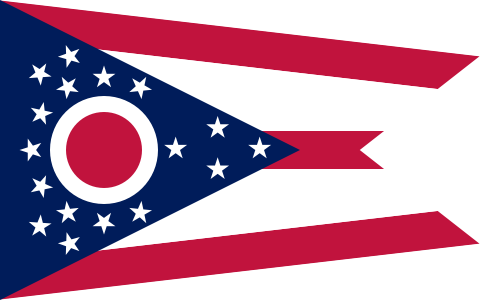
Reform on the Horizon: Senate Bill 147
State Senator Michele Reynolds’s Voter Registration Modernization Act (SB 147) is not just another piece of campaign rhetoric—it’s a comprehensive overhaul of party affiliation in Ohio. Here’s what it actually does:
Instant Party Declaration and Updates
SB 147 empowers every Ohio voter to declare, change, or remove their party affiliation in real time—online or in person—directly through the voter registration system, without waiting for a primary election. No more three‑year lock‑ins based on your last primary ballot.
Seamless Digital Integration
An easy, secure online portal integrates with BMV records to authenticate drivers’ licenses or state ID, captures your signature electronically, and automatically updates the statewide voter registration database within minutes.
Simplified Paper Forms
Every paper registration or update form must include checkboxes for all recognized political parties, a write‑in field for minor parties, and an option to remain unaffiliated. Clerks will no longer have to guess or demand you choose Democrat or Independent because the form does it for you.
Protection of Voter Rights
If you request a change in affiliation up to and including Election Day, SB 147 guarantees your new status will be in effect for that very election—ensuring you can access the correct ballot. County boards must provide written confirmation of every update or clear instructions if there’s an issue.
Data Integrity & Transparency
Real‑time updates feed directly into Ohio’s statewide voter file (established under Section 3503.15), reducing errors, purging outdated records automatically, and giving the Secretary of State instant analytics on party registration trends.
Eliminating Party “Lock‑Outs”
By decoupling party status from your last primary vote (Section 3503.191), SB 147 ends the practice of long‑standing Democratic or Republican “lock‑outs”—a boon for candidates and grassroots organizers who rely on up‑to‑date rolls for outreach.
Broad Bipartisan Support
SB 147 attracted backing from both major parties’ reform caucuses and election‑integrity advocates. It does not close primaries or force closed‑party elections; instead, it focuses solely on empowering voters to choose how, when, and if they affiliate.
Next Steps to Civic Equality
Contact your Ohio senator and representative today, and urge them to support SB 147’s passage. Let’s bring Ohio’s voter registration into the 21st century.
Contact Senator Reynolds:
Ohio Statehouse, 1 Capitol Square, Columbus, OH 43215 • (614) 466‑8054 • district25@ohiosenate.gov
Read SB 147
Why haven’t we updated our system to match 21st-century expectations?
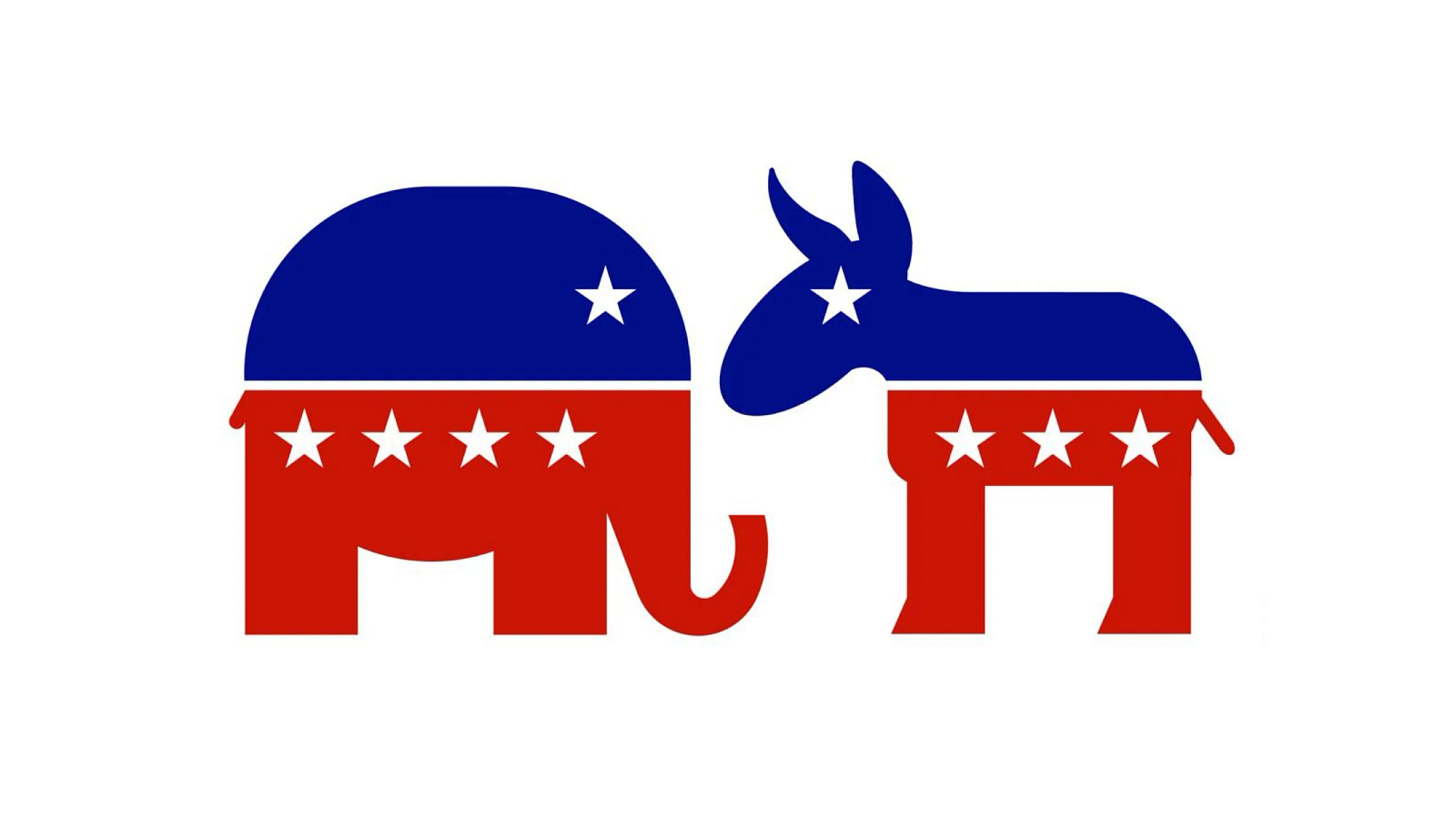
A Republican Counterpoint: “Why Lorain Turns Blue”
Even as I pressed for the chance to vote Republican, I couldn’t shake a larger Republican grievance: our system all but erases GOP participation in “blue” strongholds like Lorain. From a conservative vantage point, the rules governing primary ballots aren’t just arcane—they’re actively hostile to Republican engagement.
Unregistered and Unseen
Because Ohio ties your primary affiliation to the last ballot you cast, Republicans in deep‑blue counties seldom see contested on‑party primaries. As a result, many never “earn” a Republican designation in the voter files—and remain officially “unaffiliated” or, worse, “Democrat” by default. This undermines every Republican candidate’s base, making it appear there simply aren’t GOP voters here.
Undercounted and Undermined
With no local Republican primary races, conservatives are forced into the “issues only” box—effectively erased from candidate counts. That data feeds back into party resource allocations: with fewer active Republican ballots, state parties and national committees view Lorain as unwinnable and withhold support.
Unmotivated to Run
If a would‑be Republican candidate knows that local GOP voters can’t even receive a Republican primary ballot, why endure the time—and political heat—of a primary campaign? The result: uncontested Democratic incumbents and an ever‑stronger “Blue Lorain” label.
A Vicious Cycle
No contested primary means no visible Republican electorate. No visible Republican electorate discourages candidates. No candidates mean there’s never a Republican primary. It’s a self‑fulfilling prophecy that locks Lorain into single‑party rule—and highlights the urgent need for voter‑friendly reforms.
Why County Leaders Might Block Party Switching
The motives for BOE’s refusal to register me as a Republican run deep:
Retaliation for Legal Challenges
My lawsuit against Commissioners Moore and Riddell shook the power brokers. Denying my party switch and withholding a written explanation sends a warning: push back, and we’ll make basic procedures unbearable.
Protecting the Machine
A handful of votes can tip a primary. By delaying or denying my registration, BOE insiders shield Moore/Riddell‑backed candidates from an unpredictable voter who refuses to toe the line.
Gatekeeping & Harassment
Insiders treat me like a perpetual dissident: “First deny, explain later.” Ohio law (R.C. § 3503.06) demands a written statement for any denial—yet Kramer left me empty-handed.
Conflict of Interest
Kramer reports (indirectly) to the commissioners I sued. He wields administrative power to reward allies and punish challengers.


